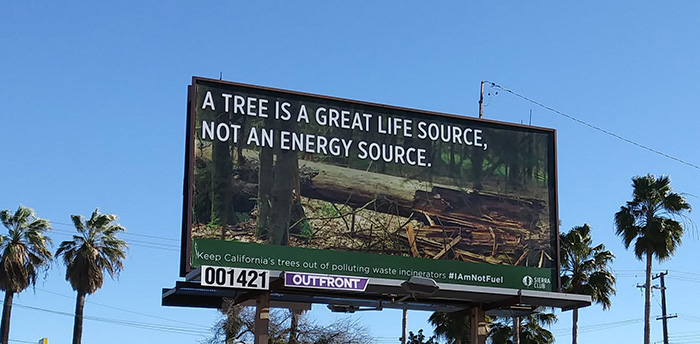
February 25, 2018
Several years ago, as we were moving our Sierra Club California offices, I had a chance to look through too many old file cabinets.
What I found was disturbing.
There were files going back more than two decades about battles at the legislature over the California Environmental Quality Act (CEQA).
And there were files going back even farther about fights to protect California’s forests from irresponsible and greedy management.
The files were also enlightening.
They showed that we’ve managed to overcome the polluters and irresponsible forest managers time and again with solid arguments, active volunteers and a big toolbox.
This year, CEQA and forests are issues we’re working on again and anticipate will get hot this year. Here’s a thumbnail report on what we see happening in those issues and what we are doing.
CEQA: Despite nearly constant attacks, we’ve managed to hang onto the essence of environmental review provided by CEQA. That 48-year-old law ensures that the folks constructing projects–from freeways to railyards to supermarkets to housing developments–disclose what the environmental impacts will be and mitigate to the extent feasible.
In short, CEQA gives people a way to know what is being built in their community, how it will affect their environment, and to advocate for improvements.
By advocating for CEQA protections for more than 30 years, Sierra Club California has helped make sure air pollution, water pollution and sprawl into wild areas doesn’t increase with every new construction project. Instead, we get development that is sustainable and creates communities where the economy can thrive.
As shown in a study in 2016 by the economics analysis firm, BAE Urban Economics, California’s environmental framework, including CEQA, does not constrain economic growth but does help ensure sustainability.
And while lawyers and lobbyists who represent certain large developer continue to claim that CEQA is a giant hurdle to housing, the research continues to show otherwise. Just this month, a study from U.C. Berkeley Law School Center for Law, Energy & the Environment concluded that in five Bay Area cities examined in the study, CEQA is not the reason housing development is slowed. Instead, the Berkeley researchers point to a range of practices related to how counties and cities process residential permits.
Nevertheless, we still see new bills designed to undercut environmental review introduced in the legislature this year. As before, we’ll pull out our arguments and call on our volunteers and friends to support our efforts to kill the bad bills.
Forests: Clearcutting continues, although not as much as before. Now, though, we are addressing threats to the forest that few thought of in the past.
We are looking at the effects of climate change, drought and opportunistic beetle infestations. Vast numbers of dead trees have created reasonable anxiety in populated areas, and trees have been felled to protect homes, people and powerlines.
Dangerous, too, are the opportunistic operators of non-economic, old, polluting biomass facilities. About five of those facilities are running almost exclusively to burn dead trees today, thanks to some actions by the governor and 2016 legislation that requires investor-owned utilities to buy power from these plants.
One of these plants is the 25-megawatt Rio Bravo plant built in 1988 in Fresno, in one of the most disadvantaged communities in the state, in what is now one of the most polluted air basins in the country. The plant is the 11th largest stationary pollution source for smog-forming, cancer-causing criteria pollutants in the San Joaquin Valley.
In addition to the pollution from the plant’s smokestacks, the plant draws diesel truck pollution as trees are moved from the Sierra to the Valley floor to be burned. Local clean air and environmental justice activists had hoped the plant, which burps out pollution 24-7, would close when its electricity purchase agreement expired in 2016. But then the bill requiring extension of the purchase agreement was passed and signed into law.
We’re actively working with our allies in the San Joaquin Valley who have been ignored by the local air board and the biomass industry. They want to close Rio Bravo Fresno for an existential reason: to breathe.
At a time when non-polluting renewable energy is abundant and cost competitive with polluting combustion energy, it sure doesn’t make sense to prop up unsustainable biomass plants. It especially doesn’t make sense when there are other, reasonable uses for dead trees that must be removed for safety’s sake. That includes making everything from mulch to flooring to furniture.
We’re sharing that message this month with an ad campaign called #IAmNotFuel.
Our files are mostly electronic now. Protecting CEQA and forests are still part of the mix. And we keep putting our arguments, volunteers and toolbox to work.
One of my mentors at Sierra Club recently said that resistance is fine, but persistence is essential.
We will persist.
Sincerely,

Kathryn Phillips
Director
Sierra Club California is the Sacramento-based legislative and regulatory advocacy arm of the 13 California chapters of the Sierra Club.
Please consider making a monthly donation.
